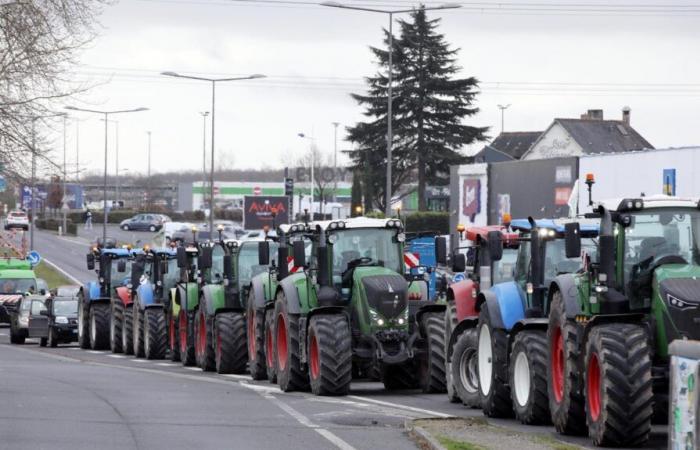Operation snail, flags at half-mast at the fronts of town halls, panels annotated with the message “3,600 farmers on borrowed time in Indre-et-Loire”… the FNSEA 37 and the JA 37 intend to mobilize the farmers of the department at the end of November 2024.
Reasons? “Standards, regulations, legacies of successive and sometimes contradictory national public policies, over-transpositions of European rules, hazardous and biased interpretations against agricultural activity are killing the initiatives of all those who want to undertake farming. »
A set “complex, illegible and often incoherent”in front of which “farmers are stifled, hindered and dispossessed of the means of action that are essential to their professions”.
Inviting the government “to seriously take up this subject, beyond the effects of announcements which have punctuated these last years”the two agricultural unions propose “34 measures which can be taken immediately without going through the law, 'simply', without financial impact for the State, by modifying decrees, orders or circulars. 34 measures to change the daily lives of farmers and get out of a logic of administrative layers that continues to grow. » Without specifying which ones in their press release.
To show their fed up, they are launching a call for mobilization this Wednesday, November 27, at 1 p.m., on the Hippodrome roundabouts in Chambray-lès-Tours and Alexis-de-Tocqueville in Saint-Cyr. sur-Loire. There, the participants will start with a snail's operation on the Tours ring road, and will raise the tone during their journey to the prefecture.
Denunciation of negotiations with Mercosur countries
In parallel with this snail operation, the FNSEA and the JA denounce “negotiations between the European Commission and the Mercosur countries […] have started again in recent weeks…”castigating “major concessions in terms of quota volumes, even though no reciprocity measures regarding production conditions are included, to the detriment of our food sovereignty, our economies and consumer health. »
The agreement would open the door, according to them, to “99,000 tonnes of beef, 180,000 tonnes of poultry meat, the equivalent of 3.4 million tonnes of corn, 180,000 tonnes of sugar (i.e. the production of a French sugar factory), 8.2 Mhl of biofuels (i.e. half of French production), etc. All produced in unacceptable conditions: use of growth activating antibiotics, absence of traceability, active phytosanitary substances banned in France (77.5% objective), some of which have been for more than twenty years, absence of social rights, deforestation…”
Faced with the specter of the replacement of sustainable European agriculture by that of other continents with practices prohibited in Europe, less expensive socially and environmentally, the two organizations ask “the total cessation of these negotiations and call on the Head of State and the French Prime Minister to ensure that France's position is respected in order to put a definitive end to these discussions”.
And to visualize the support provided to farmers across the territory, town halls were asked to lower the European flag which usually flies on their facades at half-mast.
3,600 farmers on reprieve in Indre-et-Loire?
A context which is not without consequences on the attractiveness of a profession undermined by standards, regulations, controls and constraints of all kinds and half of which will retire within ten years in Indre-et-Loire .
“The transmission of their exploitation is not assured”together deplore FNSEA and JA 37. Convinced that French agriculture – “one of the most virtuous in the world” – is in danger, they are calling to save the Indre-et-Loire farm.
Municipal entrance signs, echoing the turnaround action of November 2023, will be annotated “3,600 farmers on suspended sentence in Indre-et-Loire”.






